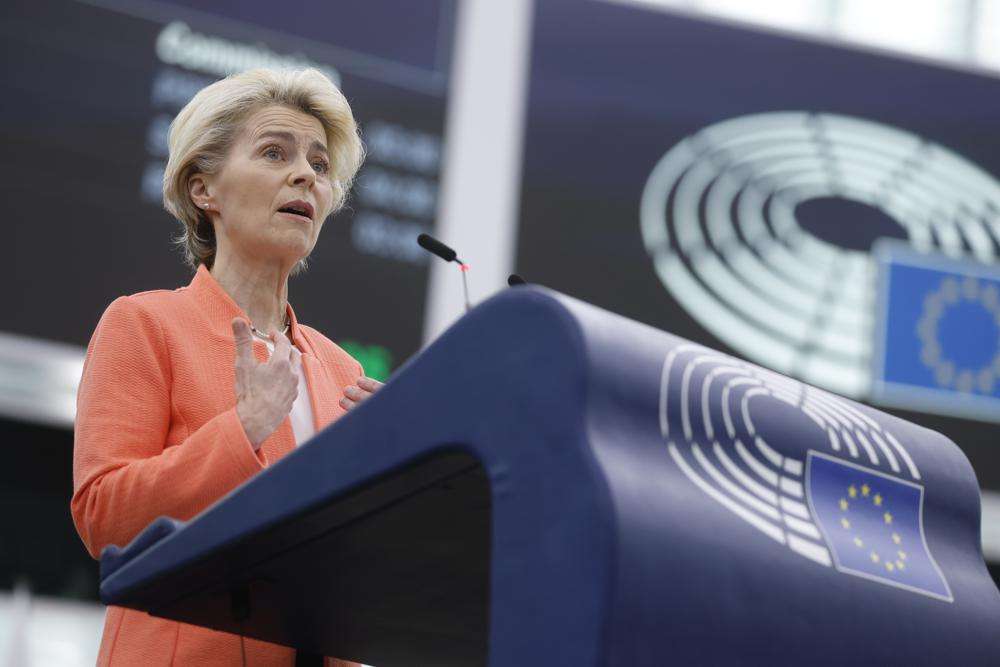The European Commission has announced that EU members have voted to impose “trade countermeasures” on the US in response to Washington’s tariffs.
European Union member states voted on Wednesday, April 9, 2025, to approve retaliatory tariffs on $23 billion in goods in response to US President Donald Trump’s 25% tariffs on imported steel and aluminum.
Trump’s expanded steel and aluminum tariffs came into effect in March.
The EU tariffs will go into effect in stages, with some on April 15 and others on May 15 and December 1, 2025.
However, the commission emphasised that the duties could be suspended “at any time” if the US agrees to a fair and balanced trade relationship.
It said in a statement, “EU considers US tariffs unjustified and damaging, causing economic harm to both sides, as well as the global economy.”
The targeted goods are a tiny fraction of the 1.6 trillion euros ($1.8 trillion) in US-EU annual trade, which sees some 4.4 billion euros in goods and services cross the Atlantic each day in what the European Commission calls “the most important commercial relationship in the world.”
Head of the EU’s Executive Commission, Ursula von der Leyen, has offered Trump a zero-for-zero tariffs deal on industrial goods including cars.

However, Trump has said that’s not enough to satisfy US concerns.
The EU has targeted smaller lists of goods in hopes of exerting political pressure and avoiding economic damage from a wider escalation of tit-for-tat tariffs.
The tariff list hits products such as orange juice, coffee, soya beans, copper, iron, poultry, motorcycles and much more.
Hungary decided not to vote for the retaliatory measures, but the general consensus was to send a strong signal to the Trump administration.
The message is that [European nations] are, first of all, united and strong, and also have the potential, if they are further shunned by the Americans, to sell their products elsewhere.
The measures come after weeks of consultation with industries, lobbying groups and EU member states on how to move forward.
There were calls for much bigger, tougher sanctions in retaliation for the Trump tariffs, but the EU ultimately decided to go for this first step [to leave room for] a potential deal.
The EU is going to convene in May to agree on a second round of retaliatory measures.
EU Members Repeat Preference For Negotiated Deal
Members of the 27-country bloc repeated their preference for a negotiated deal to settle trade issues.
The EU’s Executive Commission said in a statement, “The EU considers U.S. tariffs unjustified and damaging, causing economic harm to both sides, as well as the global economy.”
It added that the EU has stated its clear preference to find negotiated outcomes with the US, “which would be balanced and mutually beneficial.”
The EU is also working on a response to Trump’s blanket 20% tariff on all European goods, imposed as part of his sweeping “reciprocal” tariffs imposed on global trading partners.
That could include measures aimed at US tech companies and the services sector as well as trade in goods.
France’s Economic Minister, Eric Lombard said the second package “will take account not only of European imports, but also of other ways in which we can respond.”
Speaking to legislators in the National Assembly in Paris, Lombard added that “the idea is that, with these extremely strong, extremely powerful measures, we can get to the negotiating table on an equal footing, so that both sides of these duties can be lowered and all our economic sectors protected.”
READ ALSO: Absa Bank and GNCCI Champion Business Readiness for 2025 Budget























